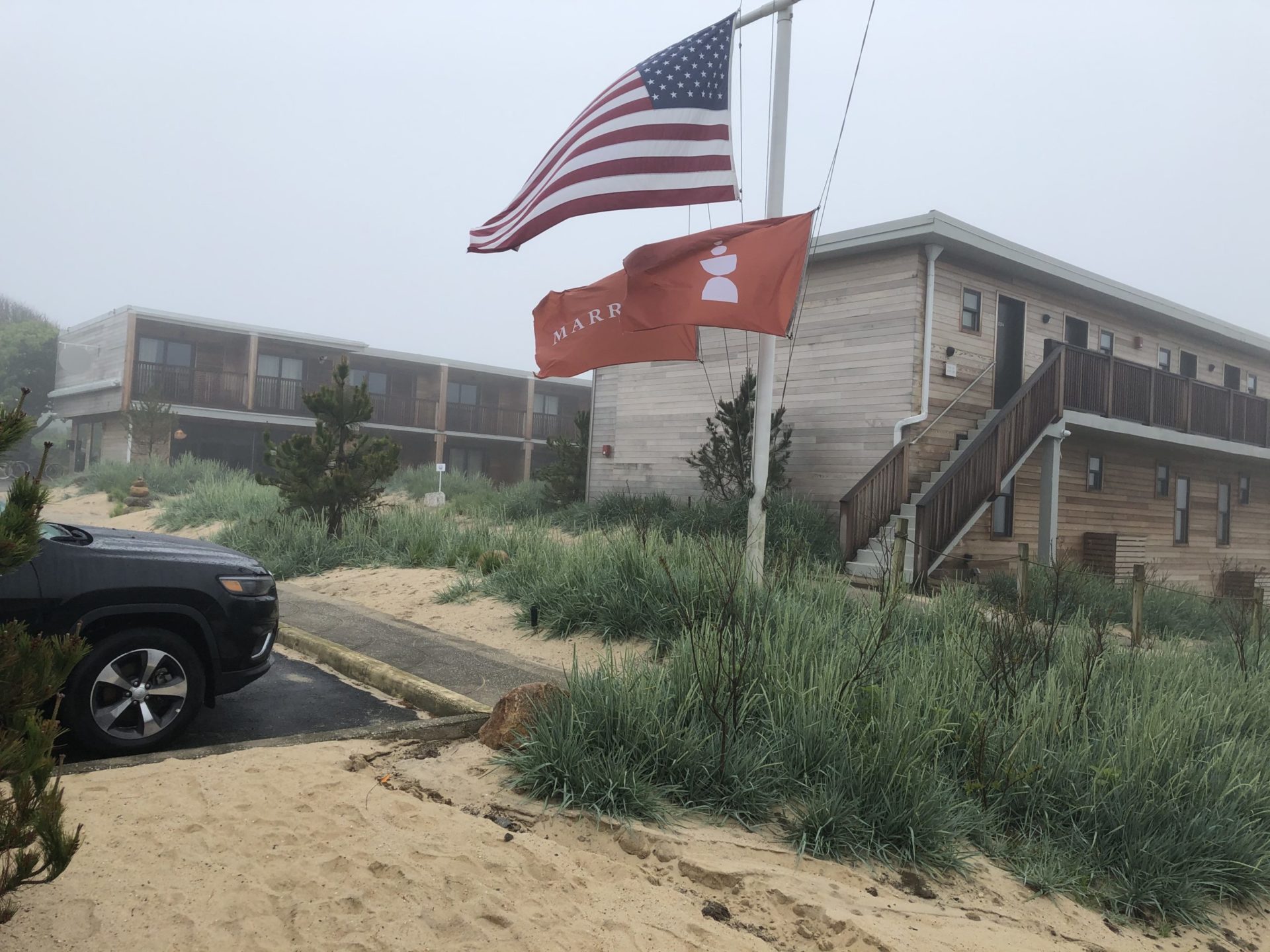East Hampton Town Takes on Bridgeton Holdings in Montauk


Bridgeton Holdings, a foreign-based hospitality management and investment company has added a third luxury resort, the former Atlantic Terrace Motel in Montauk now called Marram, to its portfolio in the town of East Hampton. As with the other two establishments, Bridgeton Holdings has allegedly built bars and obtained liquor licenses for the resort without the town’s approval.
This time, though, the stakes are much higher.
On Friday, East Hampton Town Supervisor Peter Van Scoyoc announced that the town had launched a series of legal actions against Bridgeton Holdings, alleging that it had obtained a temporary liquor license for Marram from the State Liquor Authority over the town’s objections, and then had installed three bars, along with a full restaurant, without ever receiving permits for the work from the town.
These legal actions include charges made in both the East Hampton Town Justice Court and in State Supreme Court in Riverhead, where the town is seeking an injunction to stop the operation of what it considers illegal bars and a restaurant.
The oceanfront resort is zoned residential, but predates the writing of the town’s zoning code, allowing it to operate as a pre-existing business. The site is surrounded to the north and east by residential neighbors, many of whom have expressed displeasure with the resort in the past two years, since Bridgeton Holdings took over its day-to-day operations, These complaints have been in the form of numerous letters and phone calls to the town board and other agencies. The opponents to the way Marram is being run have retained an attorney, Christopher Carillo, who is based in Montauk, to represent them.
In addition, the Suffolk County Department of Health Services inspected the site on July 27 and reported finding many violations.
The resort was purchased in August 2018 for over $32 million, by a limited liability company called Oceanview Terrace Hotel. Because that LLC is based in Delaware, details of its ownership structure are hidden from the public. Delaware is one of only a handful of states that allows that practice.
The resort is named after a coarse beach grass, Ammophila arenaria, commonly known as Marram (pronounced MAH-rom), a word derived from the Old Norse language.
While Bridgeton Holdings is part of the ownership group of the new Marram Resort, it appears that a major partner in the purchase was Blue Vista Real Estate Partners, a privately held real estate investment firm based in Chicago that controls billions of dollars in assets. Blue Vista’s clients include multi-national corporations as well as large pension funds.
According to the Compass website, the purchase was made with a $6.45 million down payment.
David Buda, an observer of the town’s governmental process supplied numerous documents, including the application to the SLA from Bridgeton Holdings for a liquor license.
In that application, a detailed map of the Marram management structure is explained. Blue Vista owns 90% of the Montauk Atlantic Terrace Hotel Operating Group, with Bridgeton Holdings, a family-owned company co-founded by Atit Jariwala, holding the other 10%. Bridgeton, in turn, manages the operational LLC.
The investors in Blue Vista who now have holdings in the Marram operational company include two subsidiary companies belonging to the publicly held Fairfax Financial Holdings Limited, who announced in March that they had turned a $2 billion profit in 2019. Another investor now holding a stake in the operational company for Marram is the Missouri State Employee Pension Fund, who find themselves with 24% of the operational group.
When Buda was asked about the ownership structure of the operating company, he warned, “Don’t confuse passive investors and active business operators.”
Bridgeton Holdings was first introduced to the Town of East Hampton, and vice versa, when Jariwala became a limited partner at the Hero Beach resort in 2017. As the operating management company, Bridgeton Holdings owns 50% of Hero Beach’s liquor license, which is active. The town opposed the issuance of that liquor license. According to the town, a bar was installed at Hero Beach without any permits being issued.
The resort is formerly known as the Oceanside Resort, and to locals, affectionately as the Smiley Face Motel.
The ownership group of Hero Beach, headed by Jonathan Krasner, has been attempting to obtain site plan approval for the property which would include the bar, but the town’s contention that much of the parking onsite is actually in the public right of way has held matters up.
The playbook followed at Hero Beach is the same one Bridgeton Holdings has followed in the two East Hampton Town resorts it has taken over since.
First, purchase a long-in-the-tooth, aging resort motel. Second, put at least seven figures worth of renovations and repairs into the property. Third, according to the town attorney’s office, construct a bar without obtaining any permits for it from the town. Fourth, get a liquor license over the town’s objections. Fifth, open for business.
And at Marram, business, apparently, is good. Marram charges $1,150 or more per night. This far exceeds rates at either Hero Beach or Journey East, where rooms can be had during the summer for about $750.
Bridgeton Holdings is not shy about its allegedly illegal restaurant at Marram called Mostrador Marram. “Restaurateur Donna Lennard brings her beloved Il Buco to Mostrador Marram for a very special summer, offering abundant counter service of savory meats, local seafood, local vegetables, and freshly baked goods that enable guests to indulge in the here & now,” Marram’s website proclaims.
Soon after Bridgeton Holdings became involved with the Hero Beach resort, they made the Atlantic Terrace purchase, as well as buying, for $5 million, what actually were two adjoining properties, formerly the sites of the former Dutch Motel, and the East Hampton Hotel. The two properties are now combined into one resort, Journey East.
With the former Atlantic Terrace, Bridgeton Holdings changed its tactics with the town when it came to obtaining permits.
Their first try, with Hero Beach, remains mired in the site plan review process, as mentioned above. But they still have their liquor license, which the town opposed in a letter to the SLA, and can still sell alcohol.
With Journey East, faced with the prospect of not being able to obtain a certificate of occupancy, the bar in the lobby was removed. But Bridgeton Holdings still has, not one, but three liquor licenses for the property, which were again opposed to in a letter to the SLA from the town, and can still sell alcohol, according to the SLA website.
With Marram, Bridgeton Holdings took a new approach: they simply did not bother to apply for any permits, other than applying to the state for a liquor license, according to the East Hampton Town planning department. The town objected to the liquor license being issued, but, once again, the SLA ignored the town attorney’s office and issued a temporary license to Bridgeton Holdings for the site.









